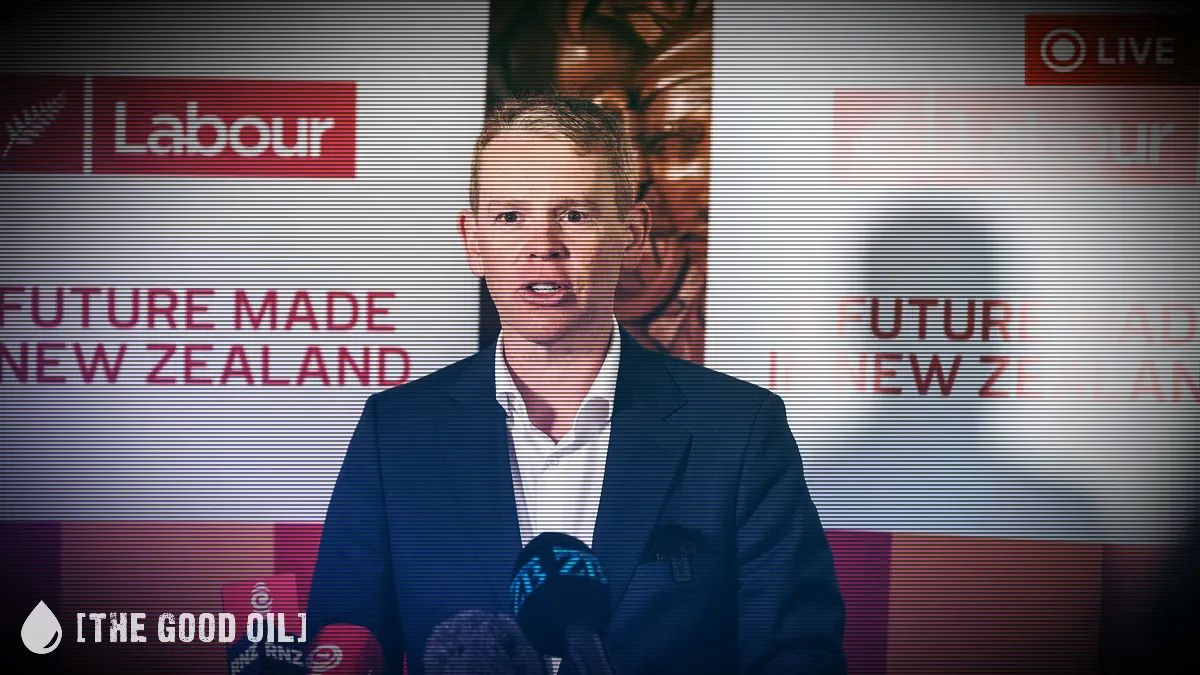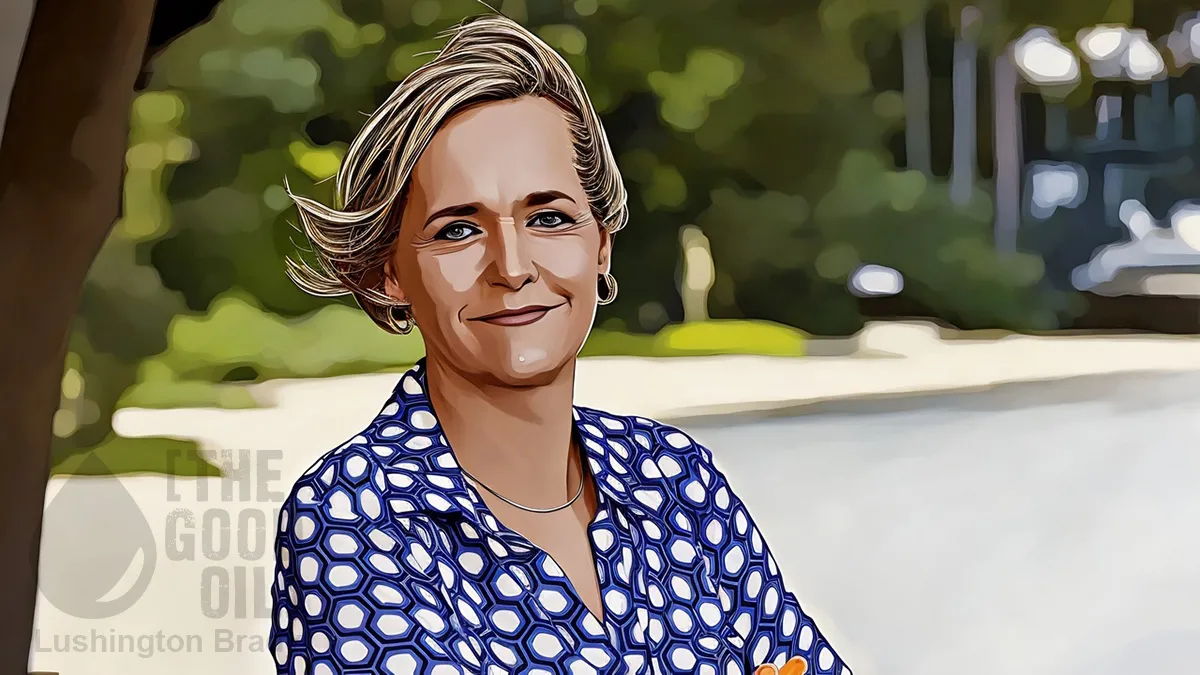Table of Contents
Simon O’Connor
Husband, step-father, and longtime student of philosophy and history. Also happen to be a former politician, including chairing New Zealand’s Foreign Affairs, Defense, and Trade Committee.
China – or more accurately, the Chinese Communist Party (CCP) – is clearly on a charm offensive here in New Zealand. Willing politicians, both current and former, along with business people and some in media, are loudly proclaiming how important the trading relationship between our two countries is; happily amplifying the words of the CCP Ambassador as he gives speeches at various fora around the country; and sharing lots of smiling photos from various Chinese embassy/consular hosted events.
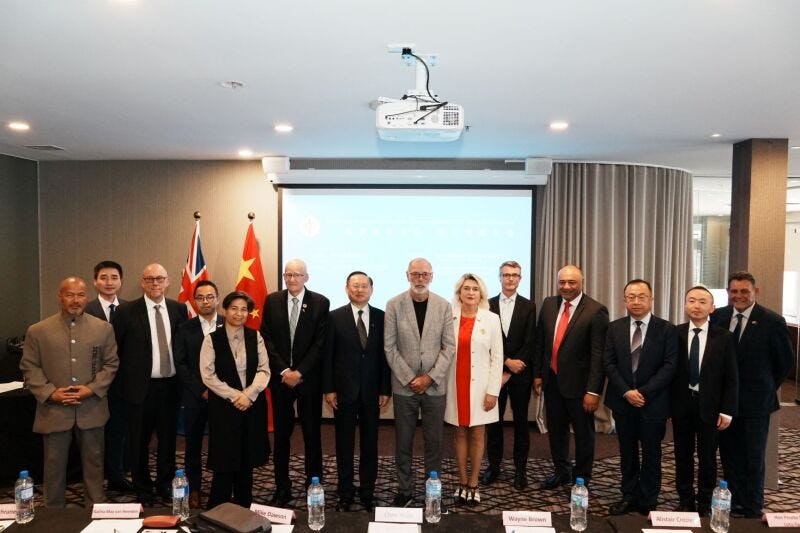
The only problem is they are all ignoring the wider picture, including the very clear and simultaneous threats the CCP is directing towards New Zealand as part of this charm offensive.
It’s a rather contradictory approach to foreign affairs – charm and threats at the same time. Whether media, politicians, business leaders and others are deliberately ignoring this, or ignorant of it, is hard to tell.
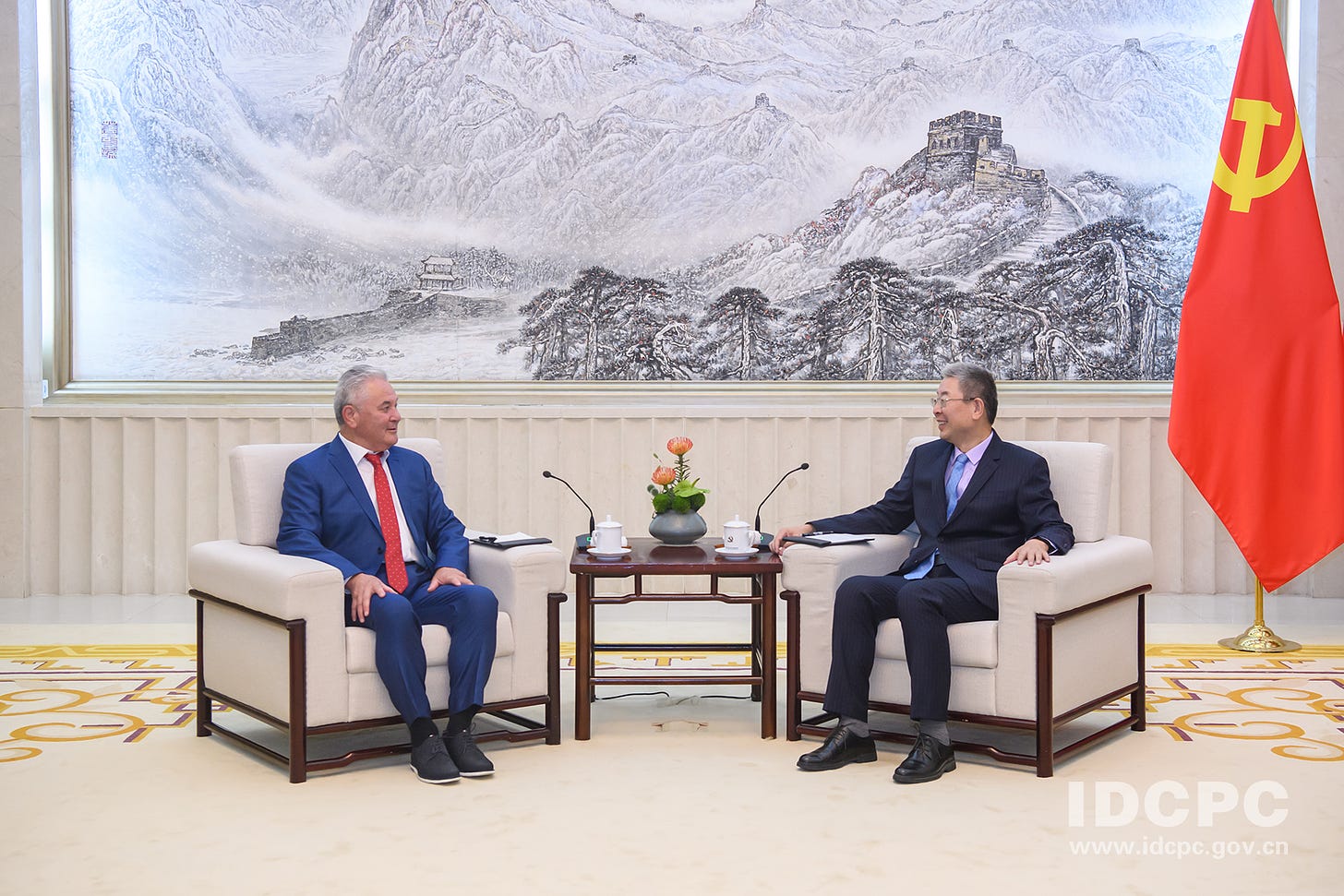
The backdrop of much of this is the recent American election and AUKUS. China is clearly trying to prevent New Zealand engaging more closely with the Trump administration and/or signing up to AUKUS Pillar II. This is, of course, quite rational for the CCP, but that many in New Zealand business, media, and politics are prepared to indulge the same narrative is worrying.
Incoming President Trump has made clear he intends to push back aggressively against China – be this around it’s trading practices as well as growing influence (aggression) in the Indo-Pacific. We know that the United States is keen that nations with shared values – such as New Zealand and Australia, and many others – play their part.
AUKUS Pillar II plays a part in this as a potential agreement which increases the national security capabilities of those signed up to it. Encouragingly, a majority of New Zealanders support signing up to Pillar II, with just one in five firmly opposing.
What is striking, once again, is how the ‘elite’ (be this in political leadership, media, business) are saying one thing but the wider public are saying another.
Recently, the Labour Party has signalled it will not sign up to AUKUS. This is quite extraordinary for, quite simply, it is putting New Zealand’s national security a distant second to cheap political expedience. It is also a major about-turn from supportively exploring the agreement when they were in government, just over 12 months ago. While the government signals interest in AUKUS, there is very clear reluctance to talk too much about it.
The contradictory approach continues in New Zealand’s defence policy. Much was recently made of new agreements between Australian and New Zealand ministers of defence and foreign affairs. The only problem is that the talk is not matched by the walk. In defence for example, greater interoperability between Australia and New Zealand was trumpeted, yet the budget for defence was cut this year. A very concrete example of this interoperability contradiction is the ministry of defence’s recent purchase of 80 new light vehicles from Spain – vehicles our Australian compatriots do not use!
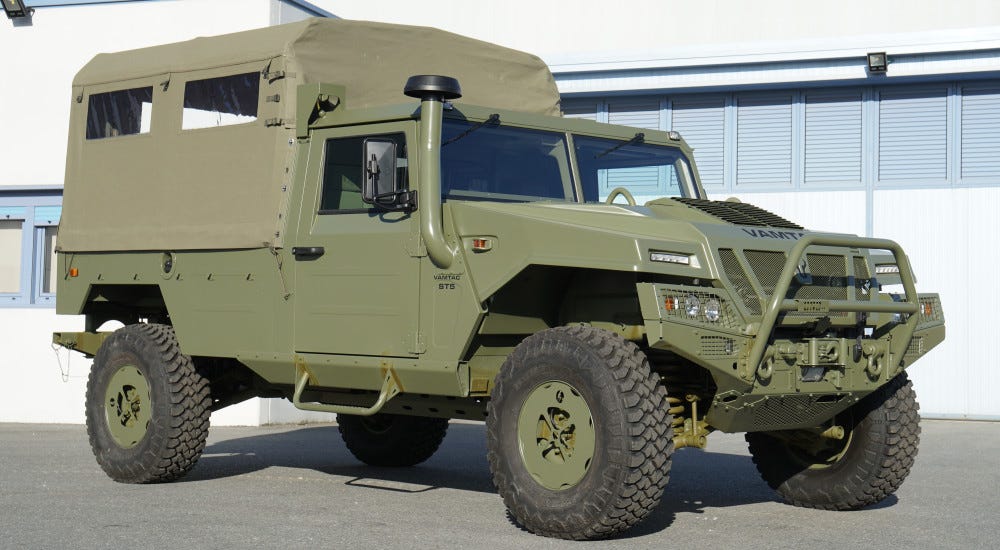
On top of this, the chief of defence force recently told MPs that they were stopping, or reducing, overseas engagements with allies as a deficit of nearly $360 million is projected for the military by next year.
Back to China. While all the talk of local elites is of ‘friendship’ and ‘relationship’, few seem to be addressing the various elephants in the room. As I have repeatedly stated, our trade with China is important but it must also sit alongside considerations of human rights and our national security.
It might be prudent for business and political leaders (including former ones) to ask why China is so keen for us to not increase our security capabilities? They might also ask why this ‘great friend’ is also willing to shadow our naval vessels while operating in international waters.
As I write, the CCP has started a large and unannounced military exercise around Taiwan. Similar to previous exercises called variants of ‘Joint Sword-2024’, it is a drill for conducting a siege of this democratic island as well as being very threatening. To reflect back the words of a former NZ prime minister who is supporting China – is this the type of ‘friend’ and ‘trading partner that we should be fighting for’?
Local Chinese New Zealanders have just presented a petition to parliament asking for an inquiry into foreign interference. Their concerns are not a figment of imagination. As I have written several times before, we are very much the target of CCP interference. I can personally attest to this!! These interference operations are broad and significant and while political leaders are almost mute on the matter, it is good to know that our intelligence agencies and various academics are clear about the reality of threat.
A final reflection, particularly to those in business and politics who focus solely on trade with China. They may wish to consider what happens to the wealthy when the CCP takes control. They would do well to Google search ‘Jack Ma’ and note how this exceptionally wealthy businessman (who founded Alibaba) just one day disappeared. He is just one example of many.
This article was originally published by On Point.




